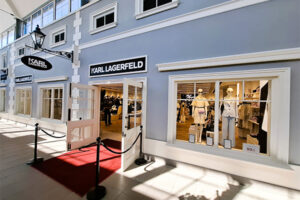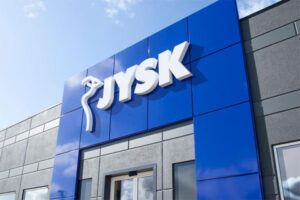The resale of products opens new opportunities for retailers. This second-sale culture—part of the megatrend towards neo-ecology—is based on the idea of keeping articles in the trade cycle as long as possible—because buying and owning isn’t everything. According to the German Zukunftsinstitut (“Future Institute”), sharing, using, and returning to use are new forms of consumption strongly influenced by the laws of online commerce and internet usage habits.
The online marketplace eBay has made secondhand socially acceptable again. Now, the resale practices of the eBay generation are mixing with the eco/social awareness of many consumers, who do not wish to promote the “throwaway” society any further. Until now, retail has been designed as a linear production and sales chain that ignored the “garbage” created when products were no longer wanted.
Neo-ecology has not spared retail, however. New concepts and business models must be developed to transform the retail chain into a cycle. Products are returned to their place of sale, restored or upcycled, and then exchanged or resold.

Resale booming worldwide
The boom in this second-sale culture can be observed beyond Germany as well. According to the study “Valuing Our Clothes” by the British non-profit “Waste & Resources Action Programme,” two out of three consumers buy or receive used clothing. 23% of respondents were willing to wear even more second-hand clothes.
It is especially remarkable that a quarter of 16- to 24-year-old women rent designer clothes instead of buying them, allowing them to wear things they could not otherwise afford. The Association of Resale Professionals (NARTS) in the United States even calls the resale industry one of the fastest-growing retail sectors. In the past two years, it has grown by seven percent. The association rightly asks: “Resale or retail? Can you tell the difference? Probably not!”
Second-sale culture is a consumer movement that poses major challenges for traditional retailers and calls for a radical rethink. It also offers tremendous new opportunities for both stationary and e-commerce, however.
In line with this trend, a new generation of recycling has recently gone from local drop-off centers to a shopping mall that sells only second-hand products. This new recycling establishment, ReTuna Återbruksgalleria, has nothing to do with the fish; instead, it was named after the Swedish town in which the building is located: Eskilstuna. It is the largest city in the Södermanland province in the country’s southeast.

ReTuna Återbruksgalleria’s facilities contain both a recycling center and a shopping mall. Customers can donate the items that they no longer need, then shop for something new – all in one stop. Dropped-off goods are sorted into various workshops where they are refurbished or repaired accordingly.
Products are then sorted into 14 specialty shops that include furniture, computers, audio equipment, clothes, toys, bikes, and gardening and building materials—all garnered from second-hand products.
The center also includes a café and restaurant with a heavy focus on organic products, as well as a conference and exhibition facility complete with a specialty school for studying recycling. Operated by the local municipality, it has benefitted the local economy by creating 50 new repair and retail jobs and providing space for private start-ups and local artisans.
Turning potential waste into profits
The biggest bonus for the Swedish community is how the center relieves local government from the tremendous burden and expense of disposing of unwanted goods while turning potential “waste” into profits.

“Our idea is that the customer comes here and leaves, for example, some furniture or clothing that they’ve gotten tired of or have no use for anymore,” said Anna Bergström, center manager ReTuna Återbruksgalleria.
She continued: “Then you do a lap of the mall. Maybe you find a new jacket and a new frame that will make that photograph of your grandfather unique and beautiful. After you eat an organic lunch in our restaurant to gather strength, you do another lap and find new flowers for the garden and a new lamp for the living room. When you leave here, you should feel that you did something good for the environment and enjoyed a successful day of shopping.”
By the way, there has long been a shopping center for used goods in the Malaysian capital of Kuala Lumpur. It is housed in a high rise and focuses on telecommunications and IT items.





